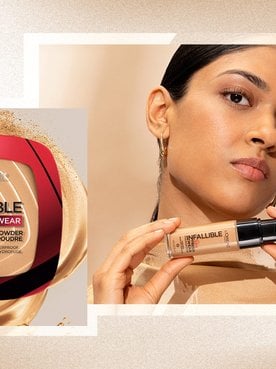Dry Skin FAQs
What Causes Dry Skin?
Dry skin, or xerosis, stems from various external and internal factors that disrupt the skin's natural moisture balance. The Mayo Clinic explains that environmental factors like cold weather, low humidity, and excessive sun exposure can strip the skin of its essential oils. Frequent hot water use in showers or baths also depletes moisture. Internally, aging naturally reduces skin's ability to retain hydration, and genetics can predispose individuals to drier skin types. Additionally, harsh soaps and cleansers can damage the skin barrier, leading to increased dryness and discomfort.
How Can I Tell I Have Dry Skin?
To determine if you have dry skin, look for these common indicators:
•Your skin might feel uncomfortably tight, especially after cleansing
•A flaky appearance, with visible peeling
•Persistent itchiness, ranging from mild to severe
•Rough skin texture
•A dull or ashy complexion
•Even more prominent fine lines and wrinkles due to dehydration
While these are common signs, dry skin can manifest differently for everyone. If you experience these symptoms, it's a good indication you might be dealing with dry skin and could benefit from targeted skincare for dry skin. Learn more about how to determine your skin type.
What Ingredients Should I Look for in My Skin Care Products for Dry Skin?
When choosing skincare products for dry skin, focus on ingredients that both hydrate and help repair your skin's protective barrier:
•Humectants: Look for humectants like hyaluronic acid and glycerin, which act like magnets, drawing moisture into the epidermis to plump and hydrate.
•Lipids & Fatty Acids: These types of ingredients nourish and fortify the skin, replenishing lost skin oils.
◯Ceramides: Ceramides are naturally occurring lipids that are vital components of the skin barrier, helping to maintain its integrity.
◯Squalane: Another beneficial barrier-supporting ingredient is squalane, a highly emollient lipid that mimics the skin's natural oils.
Good products for dry skin combine these types of ingredients to provide comprehensive care, addressing both immediate hydration needs and long-term barrier health for smoother, more comfortable skin. Try to avoid products with strong fragrances and alcohol, as these can further dry out skin.
Which Skincare Products are Best for Dry Skin?
For dry skin, selecting the right skincare products with rich, moisture-locking formulations is key.
•Opt for cream-based cleansers instead of foaming or gel formulas, as they cleanse gently without stripping natural oils.
•Follow with a hydrating toner or essence to add an initial layer of moisture and prepare your skin.
•The most important part of a skincare routine for dry skin is a thick, emollient moisturizer. Look for formulas designed to provide intense hydration and create a protective barrier, like our Hydra Renewal Moisturizer, specifically formulated to quench dry skin and prevent moisture loss.
•For an extra boost of hydration, incorporate overnight masks or night creams a few times a week; these work while you sleep to deeply nourish and restore the skin.
•Finally, a few drops of a facial oil or hydrating face serum can be beneficial to seal in moisture and impart a healthy glow.
Avoid harsh, stripping products, overly lightweight lotions, or anything marketed as mattifying, as these can exacerbate dryness and compromise your skin barrier.
What Is the Best Skincare Routine for Dry Skin?
The best skincare routine for dry skin is a consistent, tailored skincare routine focusing on hydration and skin barrier repair. Remember to apply products from the thinnest to the thickest consistency. Follow these steps for a dry skin routine:
Morning Routine:
1.Cleanser: Start with a gentle, non-stripping cream cleanser designed for sensitive or dry skin to remove impurities without stripping natural oils.
2.Essence/Toner: Optionally, follow with a hydrating toner for another layer of cleansing and moisture and to refresh skin.
3.Serum: Apply a hydrating serum such as the Revitalift 1.5% Pure Hyaluronic Acid Serum to draw moisture into the skin, plumping it up.
4.Moisturizer: Lock in hydration with a rich, emollient face cream for dry skin. You can combine moisturizer and SPF in one with a day cream like Age Perfect Collagen Expert Day Moisturizer with SPF 30.
5.SPF: Finish with a broad-spectrum SPF 30 or higher sunscreen to protect your delicate dry skin from sun damage, which can exacerbate dryness.
Evening Routine:
1.Double Cleanse: Double cleansing is especially good for taking off makeup after a long day and involves first using a no-rinse cleanser, like a micellar water or oil-based cleanser, and then following up with a rinse-off facial cleanser like your cream cleanser.
2.Essence/Toner: Reapply your hydrating essence or toner.
3.Serum: Apply a repairing or nourishing face serum. This could be another hydrating serum or one targeted for specific concerns like anti-aging, depending on your needs.
4.Night Cream/Overnight Mask: Use a rich night cream or, a few times a week, an overnight hydrating mask to intensely replenish moisture while you sleep.
Weekly Treatments & Tips: Incorporate a hydrating face mask 1-2 times a week for an extra boost of moisture. Be mindful of exfoliation; dry skin can be sensitive, so it’s best to exfoliate sparingly. Look for gentle chemical exfoliants (like AHAs at low concentrations) or very fine physical exfoliants, limiting use to once a week to avoid over-exfoliation, which can worsen dryness.
For more tips and info, check out our guide to Dry Skin Rules to Follow.
Can I Use Skin Care Products Made for Oily Skin on Dry Skin?
Generally, using skincare products made for oily skin on dry skin is not recommended. Products for oily skin are typically formulated to control oil and mattify, and they often contain ingredients like salicylic acid or alcohol that can be stripping and drying. While helpful for oily skin, these "oil-free" or "mattifying" ingredients can deplete the already lacking moisture in dry skin, exacerbating tightness, flakiness, and irritation, and potentially compromising the skin barrier.
While you can use an oily-skin spot treatment for an occasional breakout, or perhaps a lighter formulation in humid climates, regular use will likely worsen your dry skin concerns. It is much more beneficial to use skincare products specifically formulated for your skin type, adjusting your routine and product choices as seasons change to accommodate your skin's evolving needs.
Is Cream or Lotion More Effective for Dry Skin?
Face cream for dry skin is often more effective than lotion for significant dryness, but the choice between a cream and a lotion largely depends on the level of hydration needed and personal preference.
•Creams are typically thicker, containing a higher oil-to-water ratio. This rich consistency allows them to form a more substantial protective barrier on the skin, effectively sealing in moisture and providing deep, long-lasting hydration.
•Lotions, on the other hand, have a higher water content, making them lighter and faster-absorbing. While generally less intensive than creams, L'Oréal Paris does formulate specific lotions with powerful hydrating ingredients for dry skin, especially when it comes to SPF lotions like our Wrinkle Expert 55+ Age Defense UV Lotion with SPF 30. These are suitable when you prefer a less heavy feel or in more humid climates.
Ultimately, creams are often more effective for significant dryness due to their ability to provide a superior moisture lock. However, both creams and lotions can play a role depending on the specific needs of different body areas or changing environmental conditions.
Is Vitamin C Good for Dry Skin?
Yes, Vitamin C can be highly beneficial for dry skin. This powerful antioxidant offers multiple advantages that can significantly improve the health and appearance of a dry complexion. Vitamin C includes some of the following benefits:
•Vitamin C is important for collagen production, which helps maintain skin's firmness and elasticity. This can subtly improve the appearance of dry, often less plump skin.
•Vitamin C brightens the overall skin tone and enhances radiance, counteracting the dullness often associated with dry skin.
•As a potent antioxidant, Vitamin C protects the skin from environmental damage, supporting a healthier, more resilient skin barrier that is better able to retain moisture.
To harness these benefits for dry skin, choose hydrating formulas or those explicitly stated as safe for all skin types. If your skin is particularly sensitive or compromised, start with a lower concentration of Vitamin C to allow your skin to adjust. Layer your Vitamin C serum under a rich moisturizer for dry skin to seal in hydration and maximize its effects, enhancing the look and feel of your dry skin over time.
Where Can You Buy L'Oreal Paris Treatments and Products for Dry Skin?
You can purchase L’Oréal Paris skin products for dry skin in-person at your local drugstore, at grocery chains, large retailers like Walmart and Target, or online through retailers like Amazon and Ulta Beauty. Click the “Buy Online” button on the face products for dry skin's individual pages to see where to purchase online, or use our Store Locator to find an in-store option to shop for dry skin products for face near you.









